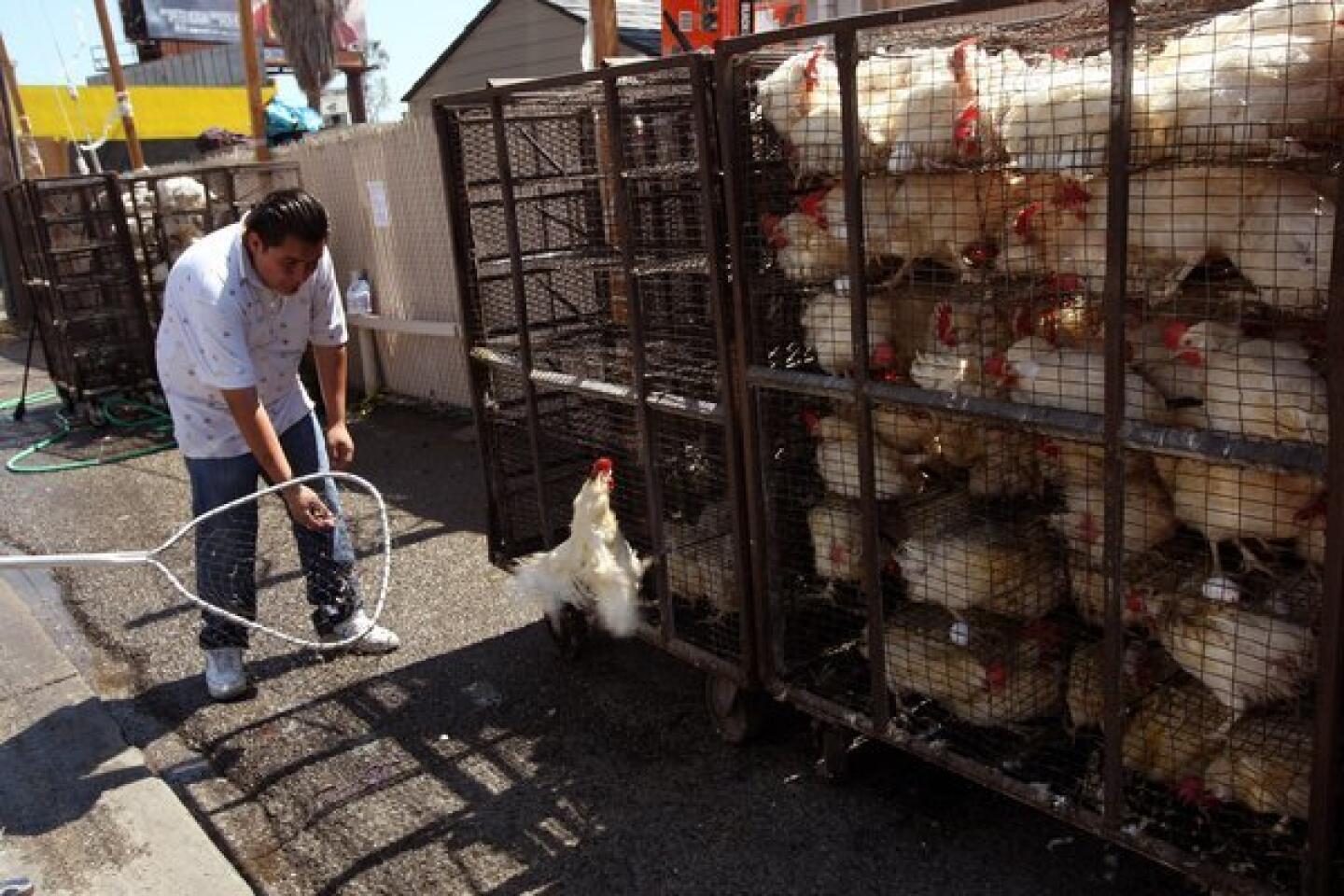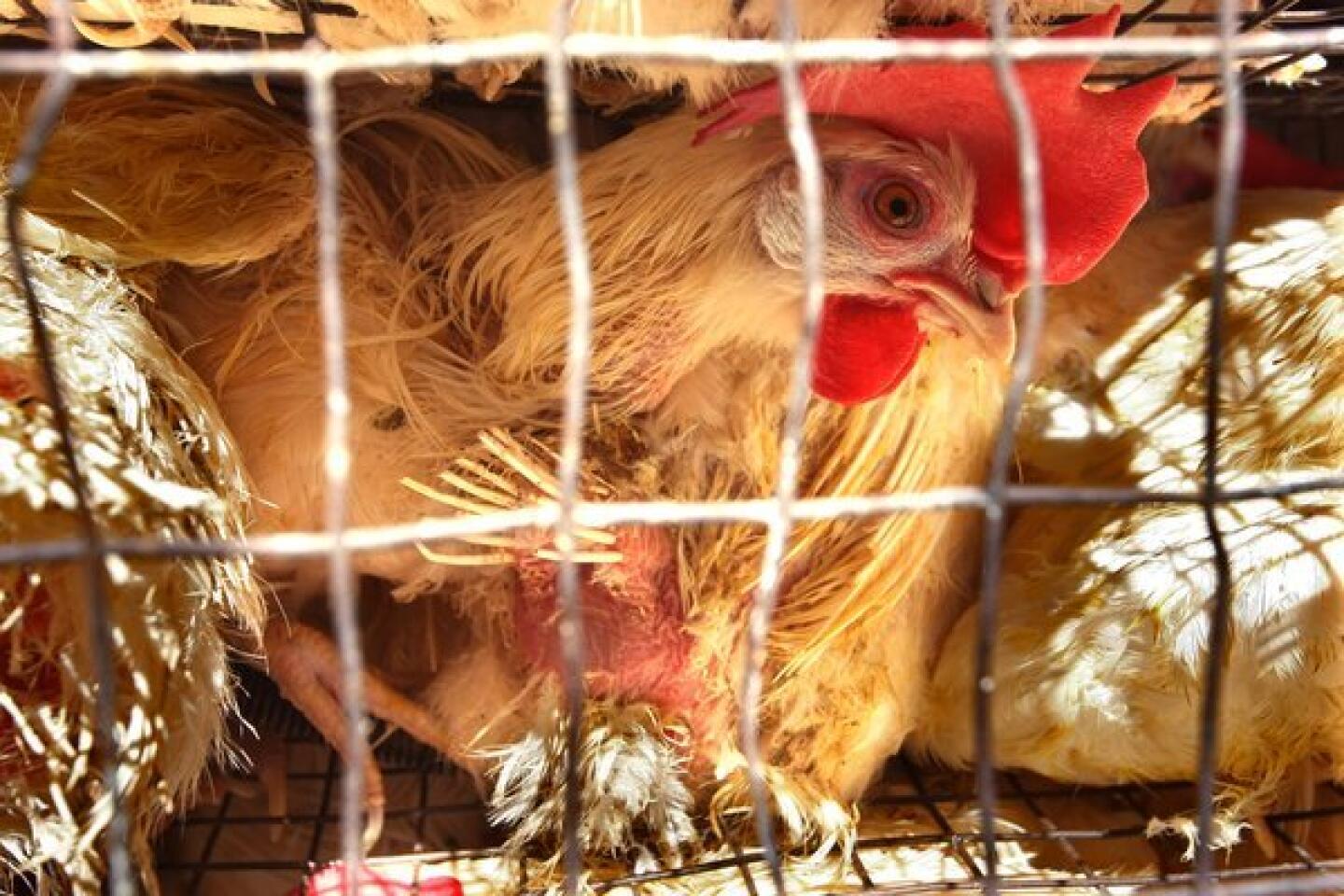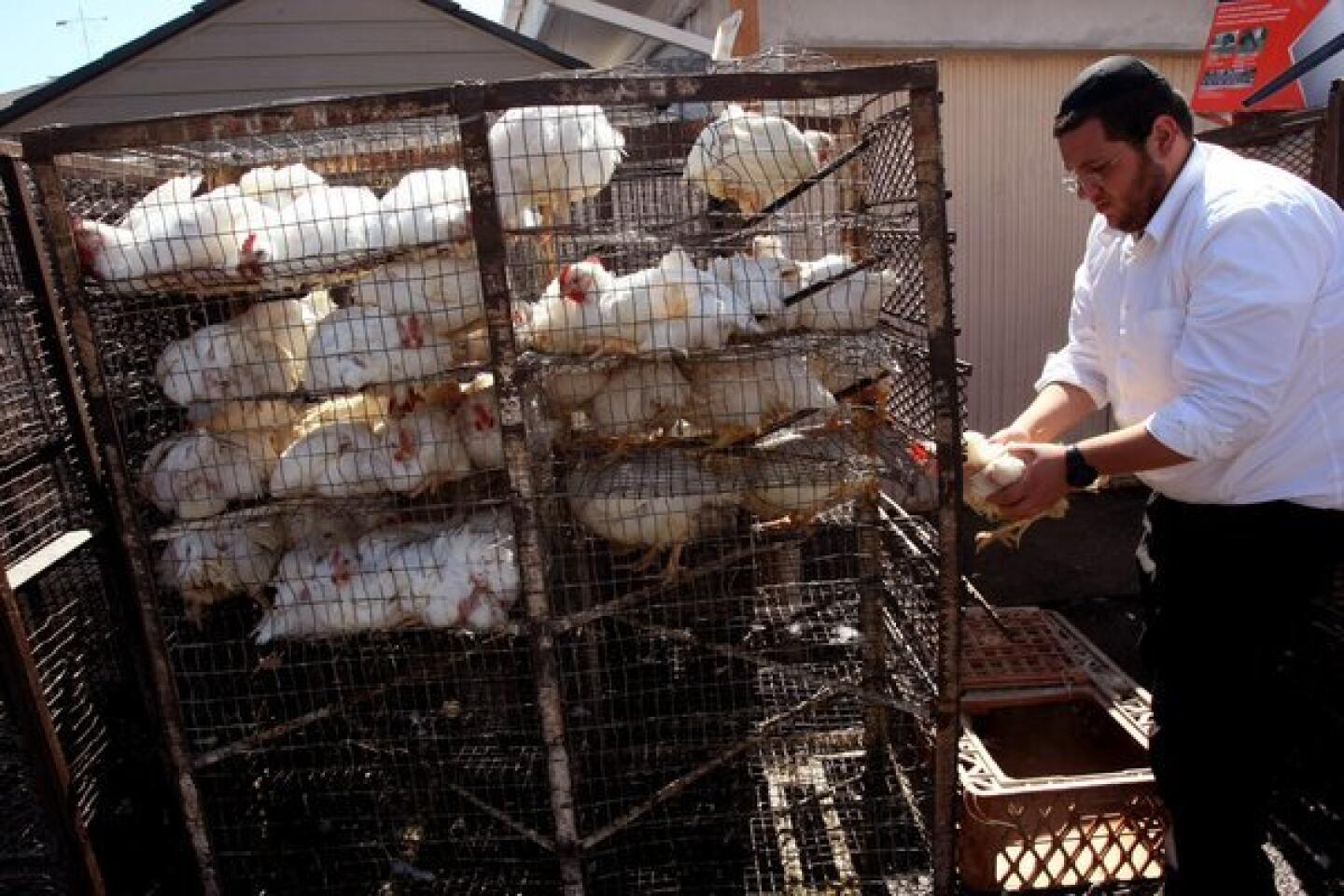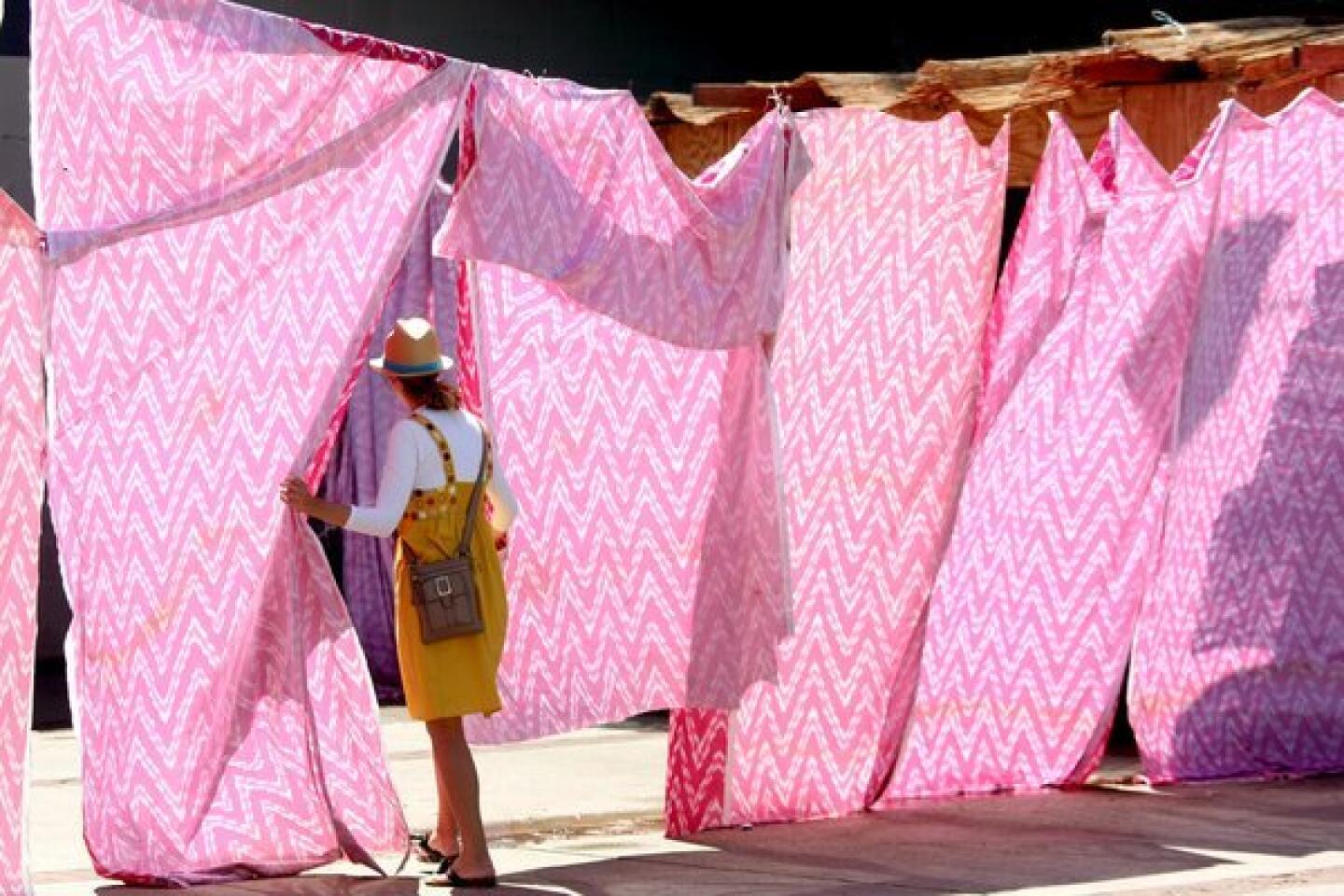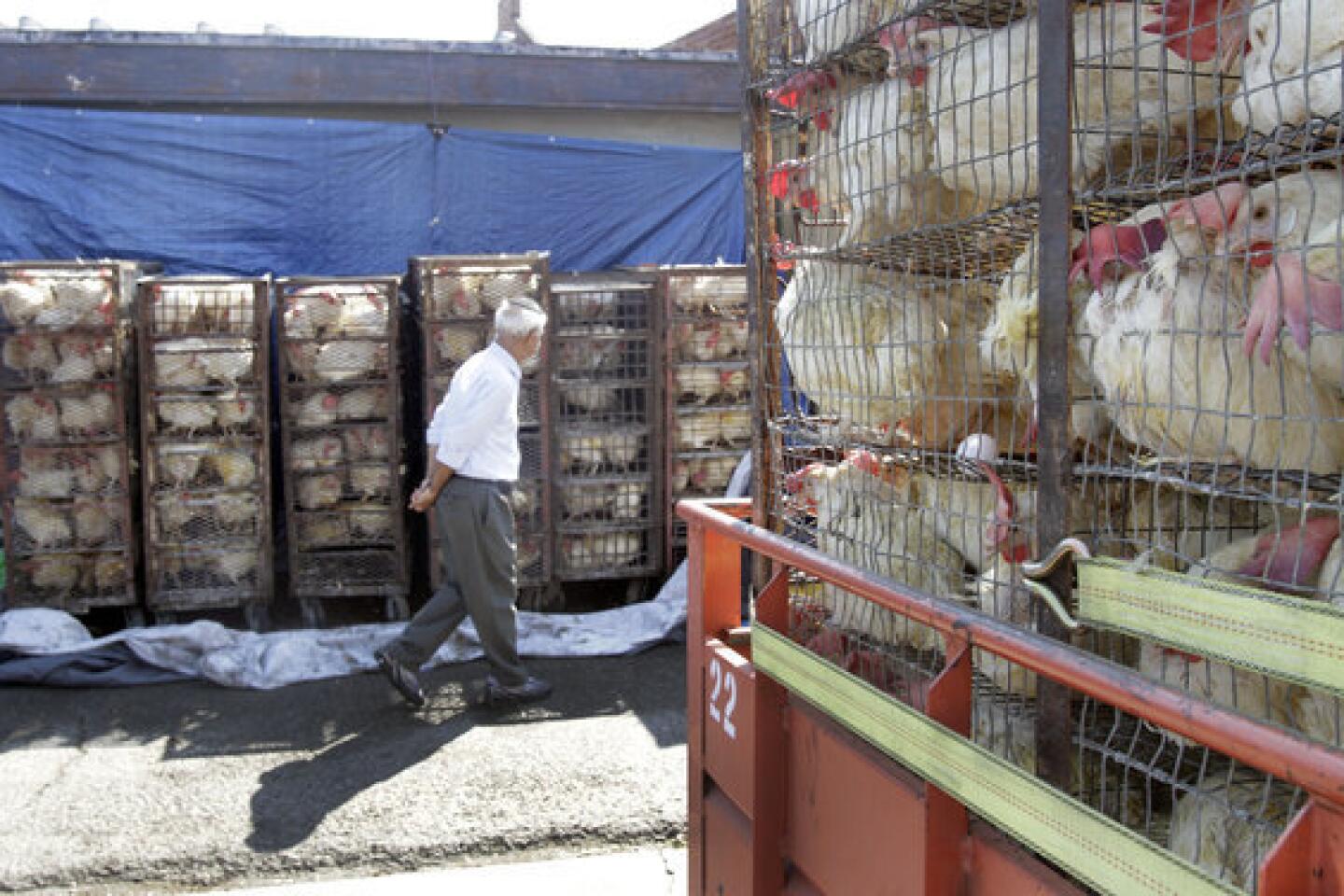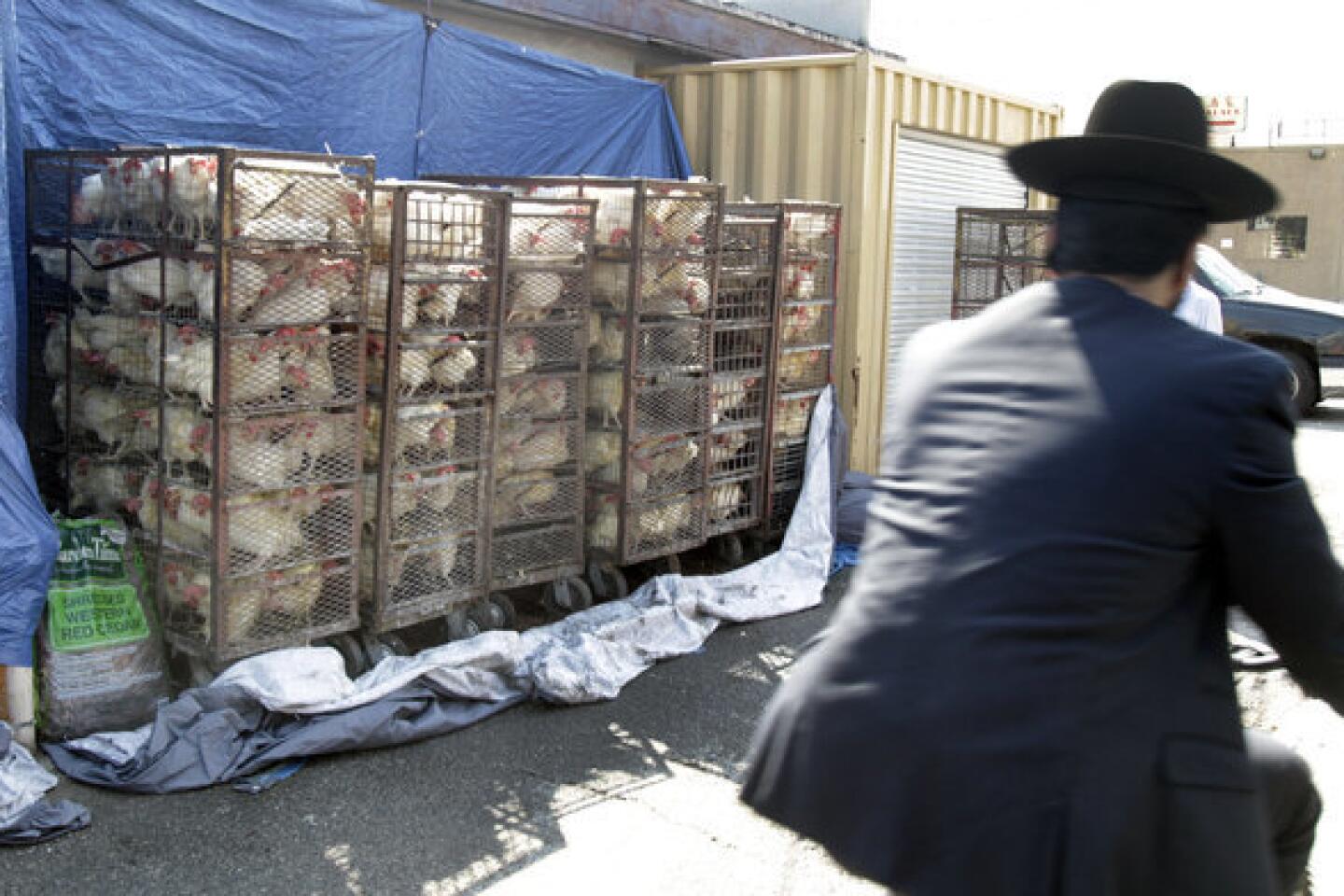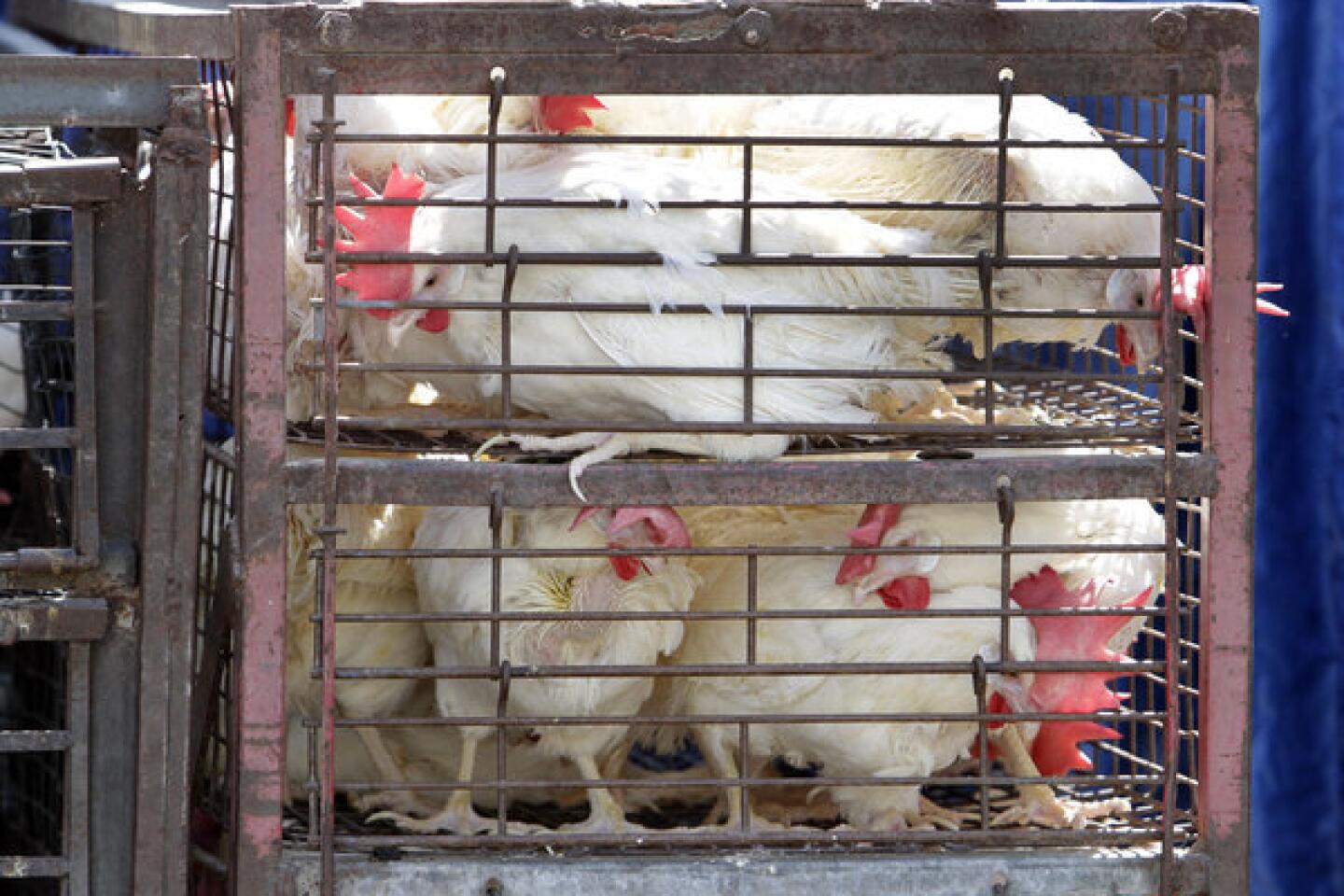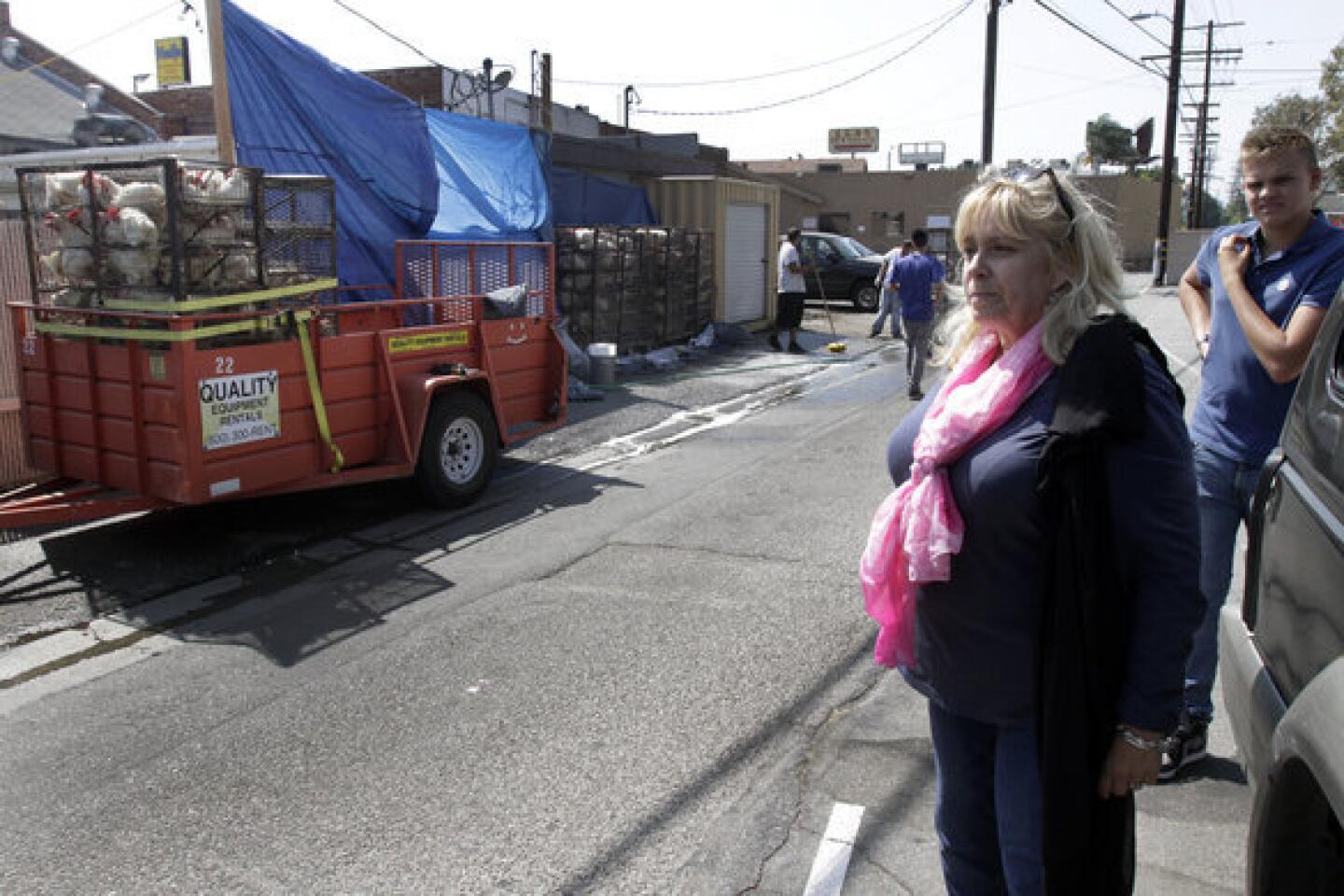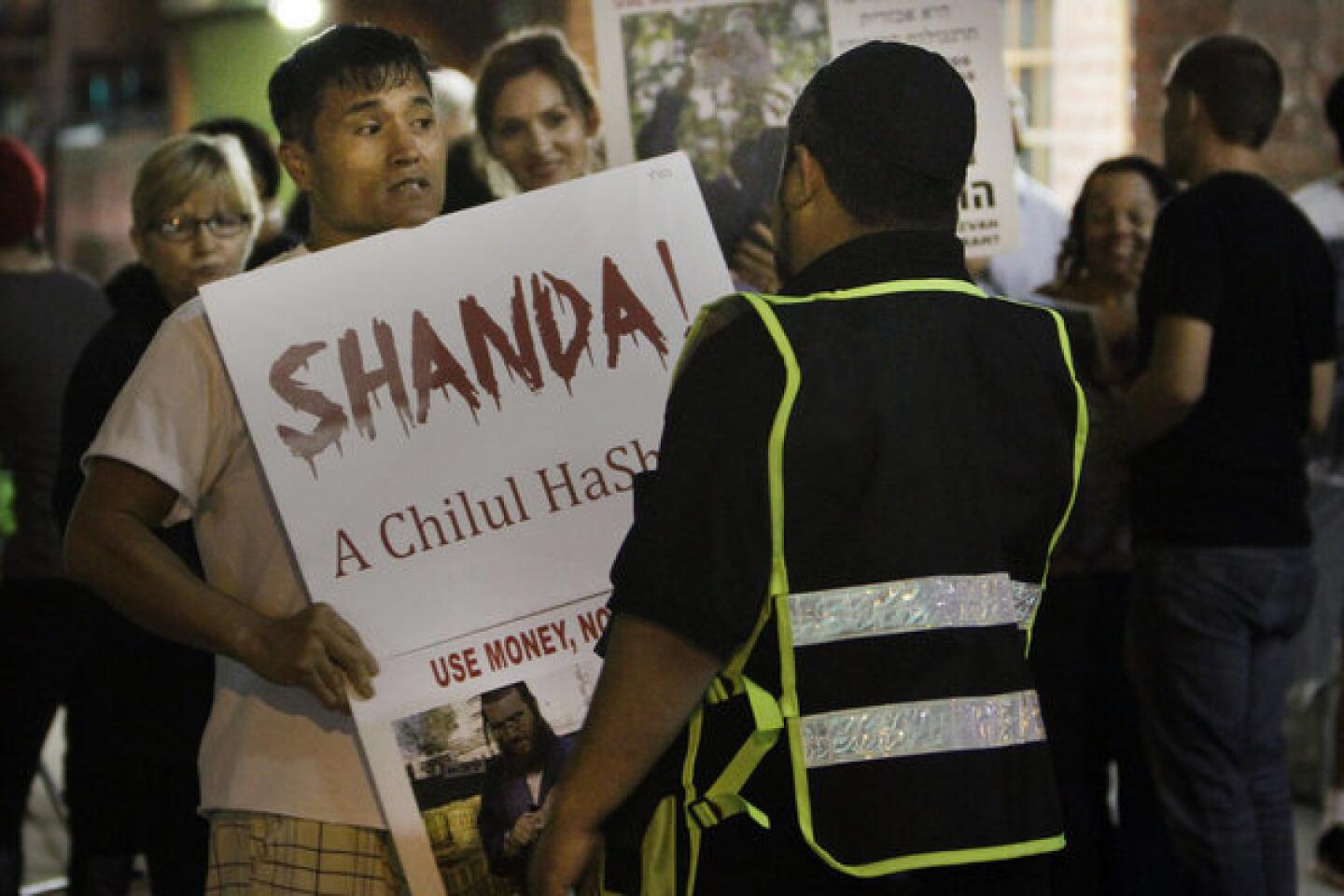Orthodox Jewish chicken-killing ritual draws protests
- Share via
In a parking lot behind a Pico Boulevard building, inside a makeshift tent of metal poles and tarps, a man in a white coat and black skullcap grabs a white-feathered hen under the wings and performs an ancient ritual.
He circles the chicken in the air several times and recites a prayer for a woman standing nearby whose aim is to symbolically transfer her sins to the bird. The young man then uses a sharp blade to cut the hen’s throat.
In the days before Yom Kippur, the Jewish day of atonement, this ritual will be repeated untold times in hastily built plywood rooms and other structures in traditional Orthodox Jewish communities from Pico-Robertson to Brooklyn, N.Y. Promotional fliers on lampposts in the area advertise the kaparot service at $18 per chicken or $13 apiece for five or more.
But the practice is increasingly drawing the ire of animal rights activists, and some liberal Jews, who say the custom is inhumane, paganistic and out of step with modern times.
“An animal sacrifice in this day and age?” said Wendy Dox, a Reform Jew and animal-rights activist who lives near the Pico alley. “That is not OK with me.”
This year, activists have launched one of the largest, most organized efforts ever in the Southland to protest the practice, known variously as kaparot, kapparot or kaparos.
Over the weekend, a coalition of faith leaders and animal-rights proponents held a “compassionate kaparot ceremony” during which rabbis used money rather than chickens for the ritual, an accepted alternative. Organizers say more than 100 people attended and some stayed to demonstrate late into the night.
Since the ceremony, activists including several staunch vegans and alarmed residents have taken to Pico Boulevard each evening, handing out fliers, setting up candlelight vigils and even bargaining with one kaparot manager to rescue chickens on the chopping block in exchange for protesting more peacefully.
The demonstrations have sometimes gotten testy. Protesters and kaparot managers alike contend that they have been peppered with anti-Semitic slurs.
In one instance Monday night, police were called after a woman refused to leave a parking lot where she heard the screeching of fowl. By the time police arrived, she had walked down the block. No one was injured and no arrests were made.
But activists said they were expecting business at kaparot sites to soar as Yom Kippur, the holiest day of the year for Jewish people, draws near. The holiday begins Friday evening.
“We’re sick and tired of people making money off of these animals,” said Rabbi Jonathan Klein, co-founder of Faith Action for Animals, which organized the weekend protest. “These people are not doing this out of the goodness of their hearts. They are not doing it because they want to remove people’s sin. They’re doing it because there’s money in it.”
Practitioners typically donate the slaughtered chickens to feed the needy, but that doesn’t satisfy critics who decry the conditions under which the birds are caged and stored.
Resident Ken McPeek, 65, has posted his own fliers protesting the practice. Five years ago, he was walking down an alley near his house when he saw people clustered around a parking lot and heard the squawks of birds. When he peeked in, he saw a man slitting the throats of chickens and throwing the corpses into a barrel “like they were footballs.”
“I’ve been to Vietnam, I worked in packing houses, but this was particularly shocking,” he said. “I told them — and I remember what I said, ‘You’ve gotta stop this. This is wrong,’ They laughed at me.”
Kaparot is mentioned in Jewish law texts at least as far back as the 16th century and was originally meant to jolt practitioners into recognizing their own mortality, according to Rabbi Yitzchok Adlerstein, an adjunct professor of Jewish law and ethics at Loyola Law School. The idea was to encourage them to transform sins into good deeds.
Many Jews living in the Pico-Robertson area immigrated from countries where families invite kaparot practitioners to their homes to perform the ritual. Here it’s more out in the open.
Bait Aaron, a Sephardic Orthodox outreach organization, this week has been performing the ritual in a tent in the parking lot of the corner building it rents at 8701 Pico Blvd. In the alley behind were stacked wire cages filled with clucking hens, their white feathers matted together with the sticky residue of yolks from the eggs they had laid and smashed.
After each ritual slaughter, the man in the black skullcap drained the chicken’s blood into a white plastic bin then put the bird on ice. Two butchers schooled in kosher practices stood by to pluck and dress the birds.
Rabbi Yakov Nourollah, a spokesman for Bait Aaron, said the kaparot crew “were doing everything within code … and in a humane way.”
“We’re not going to change our tradition,” Nourollah said. “We’re in a free country. This is America, you know.”
Still, Terrance Powell of the Los Angeles County Department of Public Health said he was surprised to hear that the birds were being dressed on the spot rather than in an approved slaughterhouse. “We’re very mindful not to interfere with religious freedom,” he said. “But that’s something that would have to be discussed.”
Asian, Latino and other communities have also grappled with outcries over cultural practices involving the slaughter and handling of animals.
Most rabbis would not consider the slaughter of chickens in compliance with kosher law as animal mistreatment, Adlerstein said. But he added that reports have surfaced that chickens were not stored and fed properly before slaughter and that chicken corpses were sometimes tossed into the trash.
“If you think about what the ritual is in its element, you’re taking chickens that are destined to die anyway … and people are paying good money for the right to have those chickens slaughtered and then fed to the poor,” he said. “That’s the way it’s supposed to be. People would be grossed out a little bit if they found out they were just spending money to draw the blade against the chicken’s neck, and that’s it.”
ALSO:
Marion ‘Suge’ Knight arrested after traffic stop near Beverly Hills
Alhambra bus crash: Driver passed out or fell asleep, officials say
Transgender teen nominated for homecoming queen in Huntington Beach
More to Read
Sign up for Essential California
The most important California stories and recommendations in your inbox every morning.
You may occasionally receive promotional content from the Los Angeles Times.
